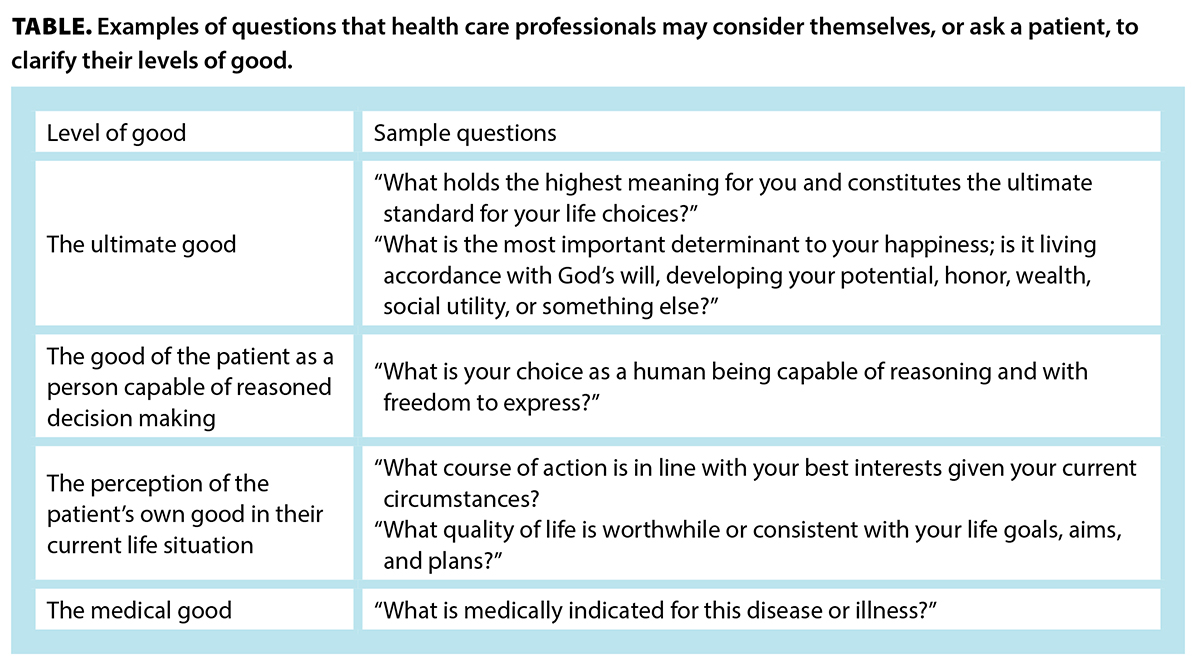

If she does not comply with dialysis it would be impractical to administer and may require restraint. On the other hand if she is not treated now she will require ongoing dialysis a number of times per week. Here, Mrs Y would be harmed by forcibly restraining her in order to insert the needle for anaesthesia. (From a legal point of view the wishes of a competent patient cannot be overridden in his best interests).ĭo no harm to the patient. The benefits of acting beneficently would need to be weighed against the dis-benefits of failing to respect Mrs Y’s autonomy. Without treatment she will suffer serious and long-term health problems that would require greater medical intervention (ongoing dialysis) than the treatment required now (operation). In the long term there will be a benefit to Mrs Y in having her autonomy overridden on this occasion.

In the short - term Mrs Y will be frightened to have a needle inserted in her arm and to be in hospital – this may lead her to distrust healthcare professionals in the future and to be reluctant to seek medical help. Here we should consider both the long term and short -term effects of overriding Mrs Y’s views.
#BENEFICENCE ETHICAL PRINCIPLE DEFINITION PROFESSIONAL#
This principle may clash with the principle of respect for autonomy when the patient makes a decision that the healthcare professional does not think will benefit the patient – is not in her best interests. The healthcare professional should act to benefit his/her patient. However an autonomous decision is one that is informed – has Mrs Y been given enough information, in a manner that she can comprehend? An autonomous decision does not have to be the ‘correct’ decision from an objective viewpoint otherwise individual needs and values would not be respected. She has expressed her wishes clearly she does not want a needle inserted for the anaesthetic. Mrs Y may not be fully autonomous (and not legally competent to refuse treatment) but this does not mean that ethically her views should not be considered and respected as far as possible. Autonomy is not an all or nothing concept. The principle of respect for autonomy entails taking into account and giving consideration to the patient’s views on his/ her treatment. Should the surgeon perform the operation despite Mrs Y’s objections?Ĭonsideration of the ethical issues using the Four Principles framework The niece is adamant that her aunt should receive treatment. Mrs Y’s niece visits her in the care home every other month. The anaesthetist is concerned that if Mrs Y does not comply with the procedure then she would need to be physically restrained. The clinician is concerned that if the cyst is not removed Mrs Y will develop renal failure and require dialysis which would involve the regular use of needles and be very difficult to carry out given her fear of needles and discomfort with hospitals. Mrs Y has indicated quite clearly that she does not want a needle inserted for the anaesthetic for the operation to remove the cyst- she is uncomfortable in a hospital setting and is frightened of needles. Mrs Y would need an operation to remove the cyst.

The cyst is blocking her ureter and if left untreated will result in renal failure. She is admitted to hospital with an ovarian cyst. Mrs Y is 56 years old and has a learning disability. To get some feel for how the Four Principles could be used by a clinical ethics committee consider the following hypothetical case study. Justice: distributing benefits, risks and costs fairly the notion that patients in similar positions should be treated in a similar manner. All treatment involves some harm, even if minimal, but the harm should not be disproportionate to the benefits of treatment. Non maleficence: avoiding the causation of harm the healthcare professional should not harm the patient. Respect for autonomy: respecting the decision-making capacities of autonomous persons enabling individuals to make reasoned informed choices.īeneficence: this considers the balancing of benefits of treatment against the risks and costs the healthcare professional should act in a way that benefits the patient

The Four Principles are general guides that leave considerable room for judgement in specific cases. (Beauchamp and Childress Principles Biomedical Ethics, OUP, 5th edition 2001)īeauchamp and Childress’ Four Principles is one of the most widely used frameworks and offers a broad consideration of medical ethics issues generally, not just for use in a clinical setting. Ethical Issues Ethical Frameworks The four principles of biomedical ethics


 0 kommentar(er)
0 kommentar(er)
